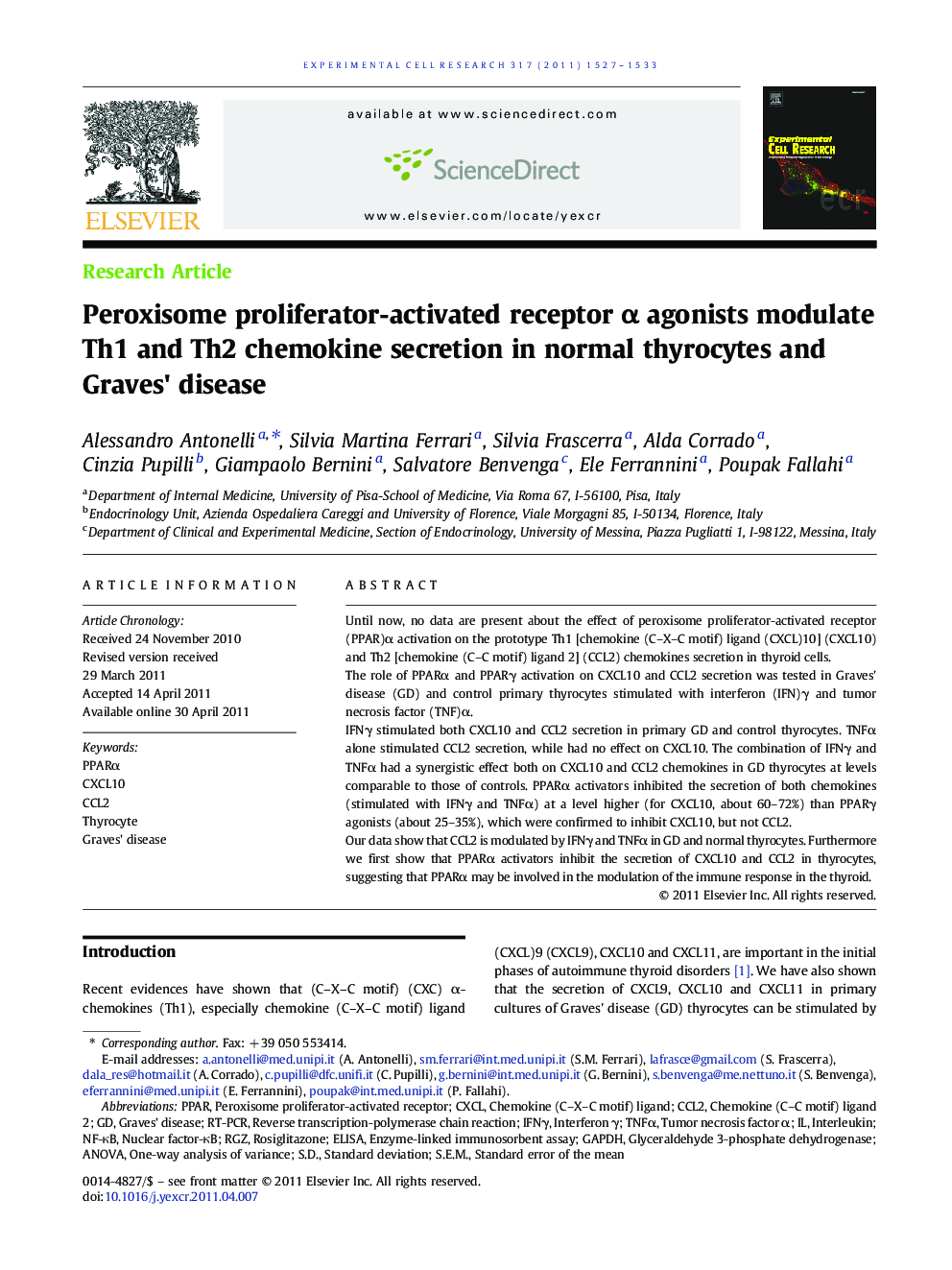| Article ID | Journal | Published Year | Pages | File Type |
|---|---|---|---|---|
| 2130882 | Experimental Cell Research | 2011 | 7 Pages |
Until now, no data are present about the effect of peroxisome proliferator-activated receptor (PPAR)α activation on the prototype Th1 [chemokine (C–X–C motif) ligand (CXCL)10] (CXCL10) and Th2 [chemokine (C–C motif) ligand 2] (CCL2) chemokines secretion in thyroid cells.The role of PPARα and PPARγ activation on CXCL10 and CCL2 secretion was tested in Graves' disease (GD) and control primary thyrocytes stimulated with interferon (IFN)γ and tumor necrosis factor (TNF)α.IFNγ stimulated both CXCL10 and CCL2 secretion in primary GD and control thyrocytes. TNFα alone stimulated CCL2 secretion, while had no effect on CXCL10. The combination of IFNγ and TNFα had a synergistic effect both on CXCL10 and CCL2 chemokines in GD thyrocytes at levels comparable to those of controls. PPARα activators inhibited the secretion of both chemokines (stimulated with IFNγ and TNFα) at a level higher (for CXCL10, about 60–72%) than PPARγ agonists (about 25–35%), which were confirmed to inhibit CXCL10, but not CCL2.Our data show that CCL2 is modulated by IFNγ and TNFα in GD and normal thyrocytes. Furthermore we first show that PPARα activators inhibit the secretion of CXCL10 and CCL2 in thyrocytes, suggesting that PPARα may be involved in the modulation of the immune response in the thyroid.
